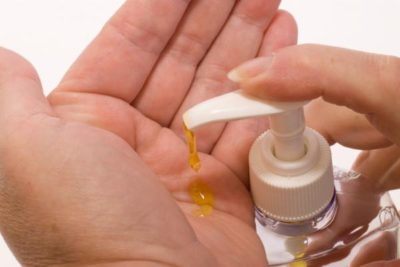

| Visitors Now: | |
| Total Visits: | |
| Total Stories: |

| Story Views | |
| Now: | |
| Last Hour: | |
| Last 24 Hours: | |
| Total: | |
Antibacterial Soaps Ineffective And May Pose Health Risks, FDA Warns
 Antibacterial soaps are no more effective than using traditional soap and may contain potentially toxic chemicals that pose a health risk, the US Food and Drug Administration (FDA) has concluded. To make matters worse, the popular soaps could actually make bacteria stronger and more resistant to antibiotics.
Antibacterial soaps are no more effective than using traditional soap and may contain potentially toxic chemicals that pose a health risk, the US Food and Drug Administration (FDA) has concluded. To make matters worse, the popular soaps could actually make bacteria stronger and more resistant to antibiotics.
“New data suggest that the risks associated with long-term daily use of antibacterial soaps may outweigh the benefits,” FDA microbiologist Colleen Rogers said. Rogers believes that some of the chemicals used in the soaps could interfere with human hormones and make bacteria resistant to bacteria.
The FDA has responded to these concerns by proposing a new rule that would require manufacturers to prove claims that antibacterial soaps and body washes are more effective than other products. Products that don’t live up to such claims would have to be reformulated, relabeled or removed from the market.
Soaps contain chemicals that have been banned in Europe
One of the FDA’s main concerns center around a chemical called triclosan. The European Union banned the use of triclosan in soap in 2010 because of its potential health effects. The FDA and the EPA are planning to do a full analysis of triclosan and similar chemicals to see if they are a threat to public health.
Source: http://www.offthegridnews.com/2013/12/27/antibacterial-soaps-ineffective-and-may-pose-health-risks-fda-warns/


